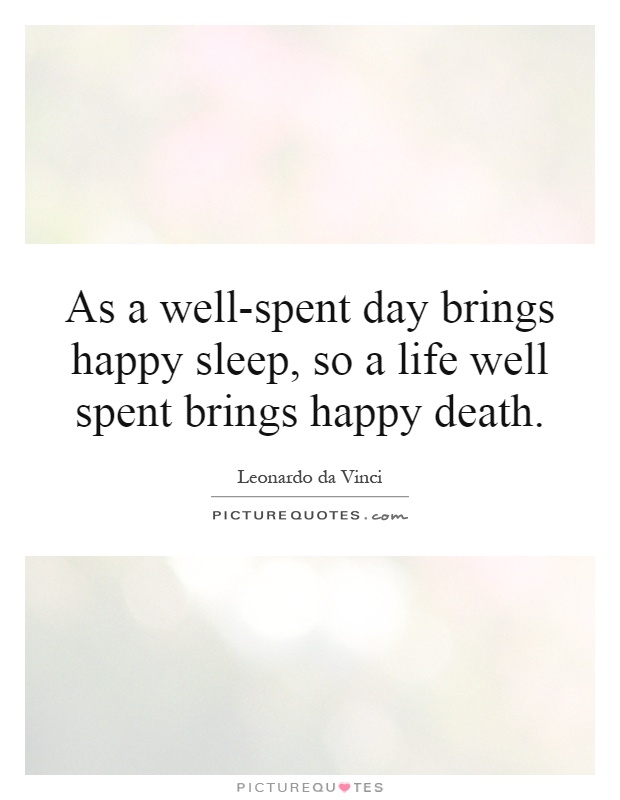As a well-spent day brings happy sleep, so a life well spent brings happy death

As a well-spent day brings happy sleep, so a life well spent brings happy death
Leonardo da Vinci, the renowned Italian polymath of the Renaissance era, is often quoted as saying, “As a well-spent day brings happy sleep, so a life well spent brings happy death.” This profound statement reflects da Vinci’s belief in the importance of living a purposeful and fulfilling life in order to achieve a peaceful and contented death.Da Vinci was not only a talented artist, but also a scientist, engineer, and inventor. His insatiable curiosity and thirst for knowledge led him to explore a wide range of disciplines, from anatomy to astronomy. He believed that the key to a fulfilling life was to constantly seek out new experiences and knowledge, and to use one’s talents and abilities to make a positive impact on the world.
For da Vinci, a well-spent day was one in which he was able to create, learn, and grow. He believed that by engaging in activities that challenged and inspired him, he could achieve a sense of satisfaction and fulfillment that would carry over into his sleep. Similarly, he believed that a life well spent was one in which he had made a meaningful contribution to society and had left a lasting legacy that would continue to inspire future generations.
Da Vinci’s philosophy on life and death is reflected in his famous works, such as the Mona Lisa and The Last Supper. These masterpieces are not only testaments to his artistic skill, but also to his deep understanding of the human experience. In his art, da Vinci sought to capture the beauty and complexity of life, as well as the inevitability of death.












 Friendship Quotes
Friendship Quotes Love Quotes
Love Quotes Life Quotes
Life Quotes Funny Quotes
Funny Quotes Motivational Quotes
Motivational Quotes Inspirational Quotes
Inspirational Quotes